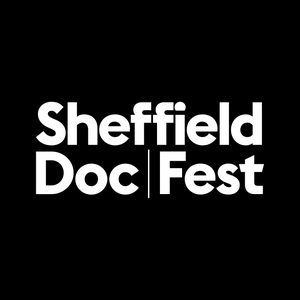
Sheffield Doc/Fest Podcast
Sheffield Doc/Fest
- 46 minutes 36 secondsMichael Dapaah aka Big Shaq talks….
Comedian, rapper and all-round sensation Michael Dapaah (aka Big Shaq) joins Karen Gabay (BBC radio host and TV producer) to discuss how he gets his message to the masses: whether communicating with his 1.4million Instagram followers, the 325 million viewers of his viral music video Man’s Not Hot, or the hundreds of thousands of fans who tune into his YouTube mockumentary series #SWIL (Somewhere In London).
Supported by Wellcome.
3 July 2020, 9:40 am - 48 minutes 51 secondsImaginary Friends: Stories from ‘the Loneliest Generation'
In 2018, the UK’s Ministry of Loneliness was installed to combat the issue of isolation. Generation Z has been singled out as ‘the loneliest generation’, with social media’s effects often receiving the blame. Chaired by mental health expert and academic Dr Chris Blackmore from the University of Sheffield, a panel of filmmakers from the 2019 programme, whose films explore the issue of loneliness in a hyper connected world, discuss this very modern phenomena and the complicated relationship between social media and feelings of loneliness.
The session was produced by Lena Nistch.
19 June 2020, 8:18 am - 54 minutes 47 secondsCinema and State: Developing Policy Frameworks for Feature Docs
UK film policy is almost entirely geared towards fiction, while the unique challenges facing the documentary sector are overlooked. It’s high-time the UK had a bespoke policy framework to support its documentary makers. What kinds of interventions are needed? How should they be developed? This session invites panelists and audience members alike to collectively brainstorm demands to better meet the needs of theatrical docs. The session is part of ‘UK Feature Docs’, an AHRC-funded study of the UK’s feature-length film industry being undertaken at the University of West England, and led by Dr Steve Presence, who chairs the discussion. Findings of this study will be published on 11 June 2020.
7 June 2020, 7:58 am - 46 minutes 24 secondsReal drama: What's Next for the Access Doc?
So you’ve got brilliant, hard-won access, now what? With fiercer competition for audiences, it’s what you do with that access that’s all important. We explore the ingredients needed for a hit series – from the inspiration behind the idea, to innovative approaches to storytelling. What are the secrets of turning access into a returnable brand, delivering compelling stories across platforms and pulling in the ever-elusive young audience?
Chaired by Mobeen Azhar with Colin Barr (Expectation), David Hodgkinson (Blast Films), Clare Sillery (BBC), Sophie Leonard (Minnow) and Nick Hornby (Optomen).
The session was produced by Catriona White (BBC) and Max Gogarty (BBC) and supported by the BBC
22 May 2020, 10:00 am - 59 minutes 36 secondsSecrets and Lies: Testimony and Archive in Contemporary History
This session from Doc/Fest 2019 explores the resurgence of archive and testimony in history filmmaking, with a panel of producers and contributors from some of the BBC’s most successful projects. The panellists discuss the opportunities afforded by the interplay between archive and testimony; why this mode of storytelling is back in full force and the ethical lines in films of this kind.
Chaired by Tom McDonald (BBC) with David Glover (72 Films), Liza Williams (Wall to Wall), Steve Condi (exec producer) and Mat Bickley (contrib.Stephen: The Murder that Changed a Nation).
The session was produced by Nancy Bornat (Wall to Wall) and was supported by the BBC.
8 May 2020, 10:00 am - 29 minutes 35 secondsCraft Summit: Filming the Unfilmable
How do documentary filmmakers tackle the most taboo of subjects and tell stories that can’t be shared openly, while respecting the ethical, legal and personal sensitivities of the people involved?
This session from Doc/Fest 2019 explores radical and hybrid formats in bringing such subjects to screen, and the innovative techniques used by directors working in film and TV.
The session was chaired by Krishan Arora with Collete Camden (dir. Married to a Paedophile) and Carl Javér (dir. Reconstructing Utøya).
28 April 2020, 10:10 am - 34 minutes 59 secondsCommissioning: Documentary for Broadcast
Highlighting their priorities, leading commissioners talk about forthcoming commissioning opportunities as they take part in Doc/Fest's version of Question Time. Commenting on recent successes, they discuss the changing landscape, the renewed focus on diversity and how producers can keep innovating for their channels. With a spotlight on relationships and with audience questions throughout, this is your chance to really get to know some of the UK’s most prolific commissioners. The session is chaired by David Glover (72 Films) and features Jo Clinton-Davis (ITV), Daniel Horan (Channel 4), Clare Sillery (BBC) and Guy Davies (C4). It was produced by the team at Hey Sonny Films.
27 March 2020, 10:00 am - 40 minutes 2 secondsMy Big Break
Pursuing a career in Film or TV can be a daunting experience, and in the early stages of doing so it’s easy to feel that those around us find success with impossible ease. A panel of Film and TV professionals explore the highs and lows of their own journeys into the industry, offering insights from their experiences and discuss overcoming the obstacles and creating the opportunities that brought them to where they are today. Supported by BAFTA Chaired by Emma Morgan (Firecracker) with Ellie Flynn, Lizzie Kempton and Eliza Capai. The session was produced by Oriana Franceschi.
13 March 2020, 10:00 am - 47 minutes 14 secondsFunding and Commissioning: Feature Documentary
With everything solid melting into air, and the documentary landscape never more varied and complex, this panel asks leading commissioners, funders & distributors: how do independent filmmakers get creative feature length documentary work made and seen today? In a panel from Doc/Fest 2019 filmmaker Rajesh Thind (Pindu Productions) talks to some of the big players in the feature doc market about what they are looking for, why they love the films they fund, and the advice they can offer to both emerging & established talent taking on the challenges of making feature length work. The panel features Mandy Chang (BBC Storyville), Lisa Marie Russo (Doc Society) and Ana Vincente (Dogwoof).
28 February 2020, 10:00 am - 36 minutes 20 secondsThrough the Eyes of the Other: Craft Summit 2019
We explore the craft of directing through films that focus on a central character. Taking us deep into their films and filmic method, 2 directors explore approaches to character, the relationship at work, and what happens if it goes wrong? Chaired by Krishan Arora (SBS) and featuring Jeanie Finlay (Seahorse: The Dad Who Gave Birth) and Tim Travers Hawkins (XY Chelsea). Supported by Documentary Campus as part of the 2019 Craft Summit at Sheffield Doc/Fest.
14 February 2020, 10:00 am - 1 hour 2 minutesBreaking the Class Ceiling
In 2018, socio-economic inequality in the television and film industry became National news, when the Panic! report revealed that the industry was becoming less welcoming to talent from working class backgrounds. Much lip-service was paid to improving access in the months that followed, but what has really changed in a year? Our panel of filmmakers and commissioners discuss their experiences of making it in the industry without connections, a trust fund or private school education.
Chaired by journalist and broadcaster Danny Leigh with Fiona Campbell (Controller of BBC3), filmmakers Paul Sng, Billie Porter and Victoria Musguin-Rowe, and journalist Kieren Yates.
The session was produced by Victoria Musguin-Rowe.
31 January 2020, 10:00 am - More Episodes? Get the App
Your feedback is valuable to us. Should you encounter any bugs, glitches, lack of functionality or other problems, please email us on [email protected] or join Moon.FM Telegram Group where you can talk directly to the dev team who are happy to answer any queries.
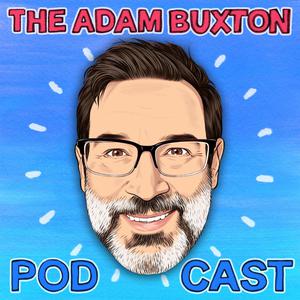 THE ADAM BUXTON PODCAST
THE ADAM BUXTON PODCAST
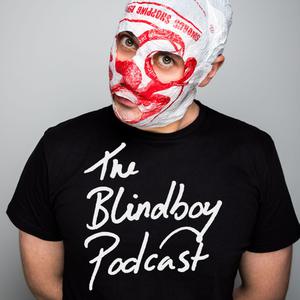 The Blindboy Podcast
The Blindboy Podcast
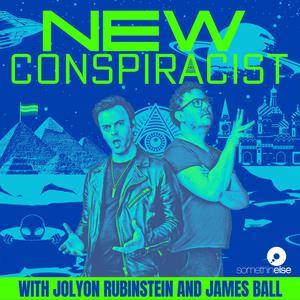 The New Conspiracist
The New Conspiracist
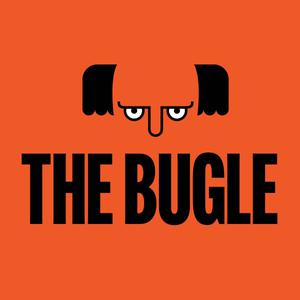 The Bugle
The Bugle
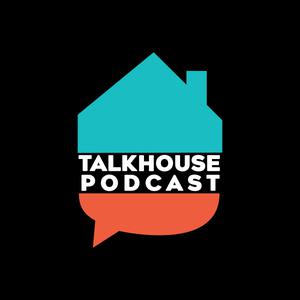 Talkhouse Podcast
Talkhouse Podcast
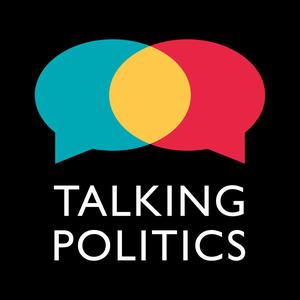 TALKING POLITICS
TALKING POLITICS